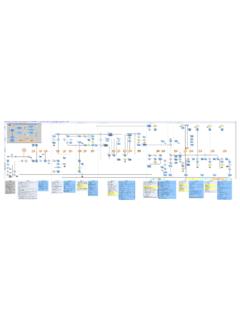Transcription of Concept Profile The Risks of Non-Recourse Premium Financing
1 The Risks of Non-RecoursePremium FinancingAdvanced Markets Concept ProfileConcept ProfileOne of the latest sales concepts in the lifeinsurance industry is Non-Recourse PremiumFinancing (NRPF). You may have already heardof such plans, or even been approached topurchase one. However, while NRPF may atfirst seem like a good way to secure inexpensivelife insurance coverage for two years, in thelong run it could be a poor choice for youand your family. Before you decide to applyfor a NRPF insurance policy, you need tofully understand how it works and the risksyou run should you chose to participate insuch an arrangement. WHAT IS Non-Recourse PREMIUMFINANCING? Non-Recourse Premium Financing (NRPF) isa program that uses life insurance on your lifeas an investment for others rather than simplya wealth protection tool for your benefit.
2 With this approach, an investor will lend yourirrevocable life insurance trust (ILIT)1thepremiums required to fund a large life insurance policy on your life. In return, yourtrust typically will be charged a high rate ofinterest, in the range of 9% 15%. In mostarrangements, the interest payment isdeferred and the investor will require that the cumulative loan, including the accruedinterest, be repaid by your ILIT at your deathor at the end of two years. So, if you diewithin the two year loan term, the death benefit will be used to repay the loan, interest,and any fees, and your ILIT will receive theremaining proceeds. If you do not die duringthis time period, your trust must pay off theloan, interest, and fees from other funds, or(since the note is Non-Recourse ) your ILIT candecide to release the policy to the this case, the investor can then decide tomaintain the policy on your life or sell it toanother investor for profit.
3 NRPF is sometimesreferred to as stranger owned life insurance ,or SOLI, because the death benefit will ordinarilybe payable to some person or entity unknownand unrelated to you and your DO INVESTORS MAKE THESE LOANS?Given low interest and bond yields, third partyinvestors, including domestic and foreignhedge funds, institutional investors, and viatical (life settlement) companies, areincreasingly investing in life insurance policiesbecause of the attractive returns they addition, even charities and foundationshave taken an interest in investing in lifeinsurance policies to increase returns andmake up for a drop in charitable gifts. In theopinion of the investors making these loans(which are unsecured except for the lifeinsurance policy itself) the benefit payable on death offers a better return than can beachieved with traditional investments withsimilar risk.
4 In effect, these investors believethey can profit on the insured's ARE THE Risks IF I PARTICIPATE INA NRPF PLAN?While NRPF may at first sound like a goodway to secure inexpensive insurance coveragefor a few years, it comes with many Issues If you decide not to repaythe loan at the end of the term period, theNRPF company will own the policy on yourlife and collect the death benefit when youdie. Before you enter into a NRPF plan, youneed to consider if you are comfortable withstrangers benefiting financially from your deathwhile your own family may receive you, nor the insurance company, cancontrol to whom the NRPF company transfersthe policy. There are few restrictions on thetransferability of the insurance.
5 In-force lifeinsurance policies have even been known tosell on the Internet!1 of 2, not valid without all The Policy At the end of the loan period, youmay decide that you want to pay off the loan and keep thepolicy. However, you will owe more than just the premiumsyou borrowed. The loan interest rates charged by NRPF companies are often very high and there are sometimescontingent fees and charges to discourage repayment of the loan. Will you be able to afford to pay off the loan?Even if you can repay it, could you have obtained the coverage for less?Insurability Issues If the NRPF company keeps the policyon your life, you may be unable to secure the additionalinsurance coverage you need, or have to pay significantlymore for it.
6 Your insurability status may have changed, andyou may now be uninsurable or highly rated. Even if youare still in excellent health, insurance companies may nothave the ability to offer you more coverage. The insuranceindustry limits the amount of life insurance it will provideon each insured (called capacity ) so that they do notface too great an exposure if any one person dies. Sincethe NRPF policy on your life is still in effect, it is using upyour capacity and the insurance company may not be ableto offer you more coverage. As a result of mergers and consolidations, individual capacity has declined in therecent years. In five years, if your situation changes, willthe NRPF deal stop you from buying coverage on your lifefor business or family needs?
7 Tax Issues If you decide not to repay the loan and let theNRPF company keep the policy on your life, the IRS maydetermine that the difference between the value of the policyand the outstanding loan amount represents a release ofindebtedness, and hence is taxable to amount ofthis potential tax expense is complicated by the uncertaintyover the value of the existing life insurance policy. Whileyou may be obliged to pay the taxes, you won't havereceived any cash from the NRPF company to help offsetthis cost. Additionally, NRPF arrangements may face futureIRS review, similar to the scrutiny charities are under for similar arrangements used in the charitable the benefits of NRPF worth enough to you to offset thepossibility of scrutiny by the IRS?
8 Other Issues The area of NRPF is so new and untestedthat other issues may emerge to reduce its benefits to instance, it is possible that if the insurance companydid not know about the NRPF agreement prior to issuingthe policy, they could successfully contest the life insurancedeath benefit. Furthermore, the SEC may determine thatsuch plans constitute a non-registered securities you really want to take these Risks ?To truly protect your family from these Risks , you may bebetter off buying the policy outright and ensuring your family will be Non-Recourse Premium Financing may have somebenefits, it is very new and untested from a tax perspective,and filled with Risks . Before you participate in such a program, you should carefully weigh these Risks and decideexactly whom you would like to protect if anything shouldhappen to you: unknown investors or your Hancock Life Insurance Company ( ), 197 Clarendon Street, Boston, MA 02116.
9 2005. John Hancock Life Insurance Company ( ). All rights should be drafted by an attorney familiar with such matters in order to take into account income and estate tax laws (including the generation-skipping tax). Failure to do so could result in adverse tax treatment of trust IRC 108(d)(3)3. Although there is no legal guidance on the NRPF Plan, legislation ( ) has been introduced in the Senate to penalize abuses involving lifeinsurance contracts and tax-exempt legislation follows up on a proposal addressing charities and investor owned life insuranceincluded in the President s 2006 budget legislation is being introduced in response to a growing concern that promoters are using life insurance contracts and the charitable insurable interest statutes in many states to obtain inappropriate benefits for private interested in this topic should consult with their own professional advisors to examine legal, tax, accounting or financial planning aspects of this of 2, not valid without all pages.





